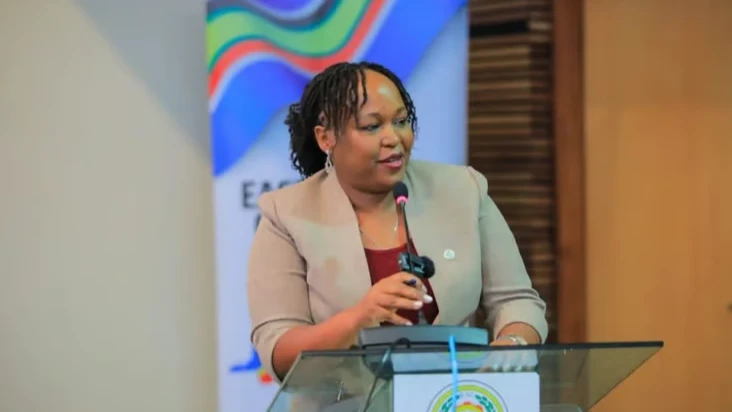EAC facilitates Customs bond transit cargo drive

THE East African Community (EAC) has launched the EAC Bond, a new regional customs guarantee instrument designed to replace the need for multiple national bonds when transporting goods across the partner states.
Veronica Nduva, the EAC secretary general, led the launching ceremony here yesterday, in the presence of James Ikuya, the East African Community Affairs state minister for Uganda, where the two top officials conducted a ceremonial wave-off of the first EAC Bond cargo truck destined for South Sudan and the Democratic Republic of Congo (DRC).
In enabling traders to secure their entire cargo journey with a single bond, the initiative is expected to significantly reduce trade costs, ease border delays and free up business capital, she stated
An EAC statement indicated that the bond was unveiled at a high-level event in Kampala, attended by senior government officials, logistics firms, commercial bank executives, insurance providers and customs officials.
Uganda, Kenya and Rwanda have indicated interest to participate in the pilot phase, with a full rollout expected to progressively include the breadth of EAC partner states, coordinated through customs authorities, she explained.
Compliance will be tied to automated systems linked with customs and cargo tracking networks, ensuring that all movements are monitored, she further noted.
A customs bond is a financial guarantee providing assurance that the government can recover duties or taxes if a trader fails to comply with chargeable amounts as provided for in customs regulations.
Ordinarily, traders moving goods from a port like Mombasa to destinations such as Kampala or Kigali are required to post separate bonds or cash deposits at every border crossing, which ties up capital and inflates trade costs, she said.
The EAC Bond eliminates these repetitive requirements, providing one bond that secures the entire movement of goods across EAC partner states, where this simplification of the customs clearance process reduces operational expenses. Businesses can thus reinvest hitherto wasted working capital into expansion, enabling job creation, the top official underlined.
The Ugandan minister affirmed that the EAC Bond is a practical solution to long-standing trade barriers that have hindered regional business growth. It is a game changer for traders, eliminating multiple bond requirements," he said.
”We are cutting unnecessary costs and speeding up trade across our borders. This will empower our business community, boost Uganda’s exports and strengthen our participation in the regional economy,” he specified.
The EAC top executive affirmed that over $35bn worth of goods move through regional corridors, yet much of this trade has been constrained by high financial guarantees and complex border procedures.
“The EAC Bond simplifies compliance, reduces operational costs and unlocks company working capital." she stated, projecting that nearly $2bn in previously tied-up capital will now be released back into the economy through digital guarantees, creating new opportunities in production, logistics and innovation.
Annette Mutaawe, the EAC deputy secretary general for Customs, Trade and Monetary Affairs, said that the EAC Bond follows a decade-long effort to establish a unified regional customs guarantee framework aligned with the EAC Customs Union and single customs territory.
"Developed through a phased, consultative process, this bond reflects the collective resolve of governments and private sector partners to ease trade and unlock economic opportunities across East Africa,” she explained.
The EAC Bond is a key component of a wider digital trade facilitation infrastructure that connects customs, insurance, banking, ports and cargo tracking systems across the region. Integrating the bond into this ecosystem enhances transparency, curbs fraud and safeguards government revenues while supporting compliant traders. The system has already reduced transit times by up to 40 percent and saved the partner states over $250m in revenue losses, she added.
Top Headlines
© 2025 IPPMEDIA.COM. ALL RIGHTS RESERVED






















